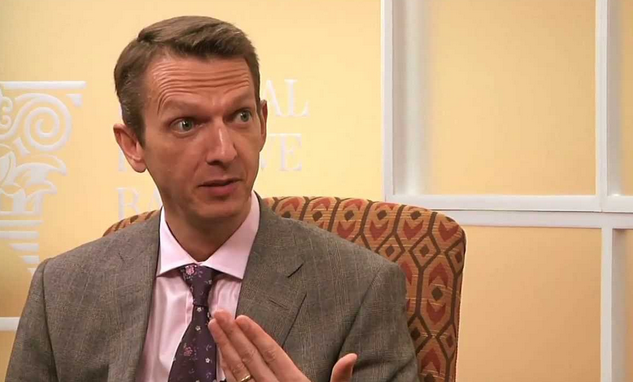BOE chief-economist and perma-bear Andy Haldane has delivered a speech on the labour market and it makes grim reading
Says Haldane
"Taking the probabilities of automation, and multiplying them by the numbers employed, gives a broad brush estimate of the number of jobs potentially automatable. For the UK, that would suggest up to 15 million jobs could be at risk of automation. In the US, the corresponding figure would be 80 million jobs"
That's gonna make a 90k variation in NFP expectations seem a tad tame!
He goes on to try and be a little more upbeat, and yes we are talking a few years down the road!
"I do not want to make this sound like a counsel of despair. All of these projections, like those of Ricardo and Keynes previously, may be far too pessimistic. The lessons of history are that rising real incomes have ridden to the rescue, boosting the demand for new goods from new industries requiring new workers. During previous phases of technological growth, workers have moved up the income escalator by "skilling up", thereby keeping one-step-ahead of the machine".
Full speech here and it's a long one
He also explains his reasons for keeping interest rates on hold:
"Uncertainty about demand is, once more, on the rise. Given its source - the third in a triplet of crises, this time afflicting the emerging market economies - I do not expect that rise in uncertainty to be temporary. I expect its impact to be greater in today's world of post-crisis traumatic stress and could more than offset the cost of capital accelerator, as we have already seen repeatedly since the crisis.
Against that backdrop, my view is that the case for raising interest rates is still some way from being made. Whatever the reason, the economic aircraft appears to be losing speed on the runway. That is an awkward, indeed risky, time to be contemplating take-off. Meanwhile, inflationary trends do not at present given me sufficient confidence that inflation will be back at target, even two years hence. Growth has slowed towards trend in the UK, US and globally. And speed limits matter. Any further loss of momentum would risk taking growth below trend, widening the output gap and adding to downward pressures on already-weak prices.
My personal view is that, in the current environment, a rate rise would increase unnecessarily the chances of the economy falling below critical velocity, thereby extending the period inflation remains below target.
For those reasons, I have continued to vote to leave rates unchanged, with a neutral stance on the future direction of monetary policy. Now more than ever in the UK, policy needs to be poised to move off either foot depending on which way the data break"

BOE's Haldane - The world ahead will have an awful lot of robots



